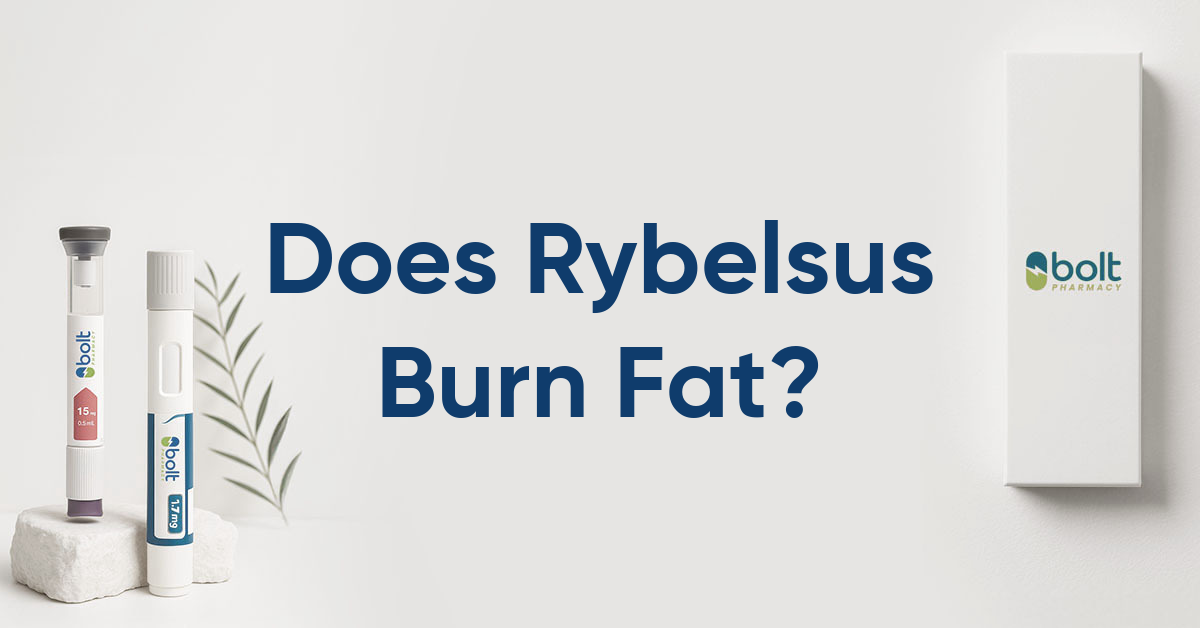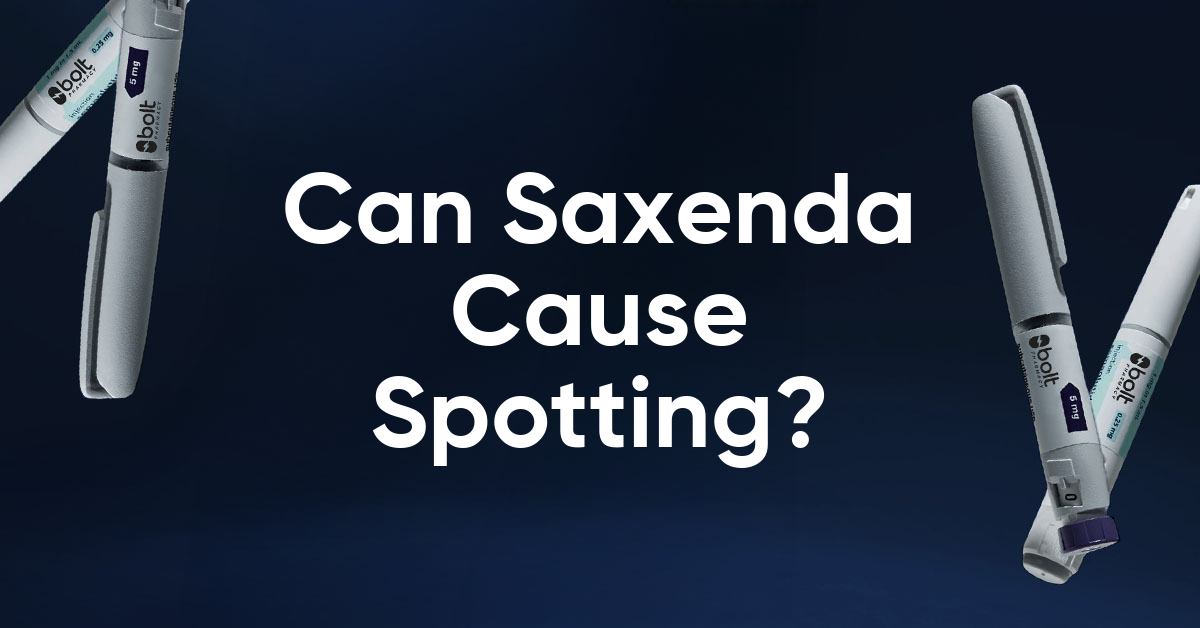Rybelsus (semaglutide) is an oral medication licensed in the UK for managing type 2 diabetes mellitus in adults. As a glucagon-like peptide-1 (GLP-1) receptor agonist, it regulates blood glucose levels and appetite, leading many patients to experience weight reduction during treatment. Whilst Rybelsus is approved by the Medicines and Healthcare products Regulatory Agency (MHRA) specifically for glycaemic control, its effects on body weight have generated considerable interest. This article examines whether Rybelsus directly burns fat, reviews clinical evidence on weight loss outcomes, and clarifies who can appropriately use this medication in the UK healthcare system.
Summary: Rybelsus does not directly burn fat but facilitates weight loss primarily through appetite suppression and reduced caloric intake, which indirectly promotes fat mobilisation.
- Rybelsus (semaglutide) is a GLP-1 receptor agonist licensed in the UK exclusively for type 2 diabetes mellitus management in adults.
- The medication works by stimulating glucose-dependent insulin secretion, suppressing glucagon, slowing gastric emptying, and promoting satiety.
- Clinical trials show modest weight loss of 3–5 kg over 6–12 months in patients with type 2 diabetes, achieved through reduced caloric intake rather than direct fat oxidation.
- Common adverse effects include nausea, vomiting, diarrhoea, and abdominal discomfort, particularly during treatment initiation or dose escalation.
- Prescribing Rybelsus solely for weight management in individuals without diabetes constitutes off-label use and requires careful clinical consideration and informed consent.
Table of Contents
What Is Rybelsus and How Does It Work?
Rybelsus (semaglutide) is an oral medication licensed in the UK for the treatment of type 2 diabetes mellitus in adults. It belongs to a class of medicines called glucagon-like peptide-1 (GLP-1) receptor agonists, which mimic the action of a naturally occurring hormone that regulates blood glucose levels and appetite. Rybelsus is taken as a once-daily tablet.
The mechanism of action of Rybelsus involves several physiological pathways. When taken, semaglutide binds to GLP-1 receptors in the pancreas, stimulating insulin secretion in a glucose-dependent manner—meaning insulin is released only when blood sugar levels are elevated. This helps reduce the risk of hypoglycaemia, though this risk increases when used with insulin or sulfonylureas. Additionally, Rybelsus suppresses glucagon secretion, a hormone that raises blood glucose, thereby helping to maintain more stable blood sugar levels.
Rybelsus must be taken on an empty stomach with up to 120 ml of water, and patients should wait at least 30 minutes before eating, drinking, or taking other oral medicines. Treatment starts with 3 mg once daily for 30 days (a starter dose not intended for glycaemic control), then increases to 7 mg daily, with a possible increase to 14 mg after at least 30 days if needed. Rybelsus is not indicated for type 1 diabetes or diabetic ketoacidosis.
It is important to note that whilst Rybelsus is licensed for diabetes management in the UK, its effects on body weight have generated considerable interest. The Medicines and Healthcare products Regulatory Agency (MHRA) has approved Rybelsus specifically for glycaemic control in type 2 diabetes, and any use for weight management alone would be considered off-label.
Clinical Evidence: Weight Loss Results with Rybelsus
Clinical trial data demonstrate that Rybelsus produces meaningful weight reduction in patients with type 2 diabetes. The PIONEER clinical trial programme, which evaluated semaglutide tablets across multiple studies, consistently showed weight loss as a secondary outcome. In the PIONEER 1 trial, patients taking Rybelsus 14 mg (the highest licensed dose) lost an average of 3.7 kg over 26 weeks compared to placebo. Similar results were observed across the PIONEER series, with weight reductions generally proportional to the dose administered.
The PIONEER 4 study compared Rybelsus directly with liraglutide (another GLP-1 receptor agonist) and placebo. Participants receiving Rybelsus 14 mg experienced a mean weight loss of approximately 4.4 kg at 52 weeks, demonstrating sustained effects over a longer treatment period. These findings suggest that the weight-reducing properties of Rybelsus are maintained with continued use, rather than representing a temporary effect. Importantly, weight loss occurred alongside improvements in glycaemic control, with reductions in HbA1c (a measure of long-term blood glucose) of 1.0–1.4% depending on the dose.
It should be noted that these trials enrolled patients with type 2 diabetes, not individuals seeking weight loss alone. The extent of weight reduction with Rybelsus appears more modest compared to higher-dose semaglutide formulations specifically licensed for obesity management (such as Wegovy, which contains 2.4 mg semaglutide). Patients should be aware that individual responses to Rybelsus can differ considerably, and weight loss is not guaranteed for everyone taking the medication.
Who Can Use Rybelsus for Weight Management in the UK?
In the United Kingdom, Rybelsus is licensed exclusively for the treatment of type 2 diabetes mellitus in adults, either as monotherapy (when metformin is inappropriate) or in combination with other glucose-lowering medications. The National Institute for Health and Care Excellence (NICE) provides guidance on GLP-1 receptor agonists for diabetes management, recommending their use when certain glycaemic and clinical criteria are met. Rybelsus is not currently licensed by the MHRA for weight management in people without diabetes, which distinguishes it from Wegovy (high-dose semaglutide) that has specific approval for chronic weight management.
For patients with type 2 diabetes, Rybelsus may be prescribed when:
-
Metformin is contraindicated or not tolerated, and the patient has a preference for oral therapy
-
Additional glycaemic control is needed alongside existing diabetes medications
-
The patient would benefit from a treatment that also supports weight reduction
The UK product information includes a warning about thyroid C-cell tumours observed in rodent studies, though the human relevance remains uncertain. Concomitant use with other GLP-1 receptor agonists is not recommended.
Prescribing Rybelsus solely for weight loss in individuals without diabetes would constitute off-label use. Whilst off-label prescribing is legal and sometimes clinically appropriate, it requires careful consideration of the evidence base, potential risks, and informed patient consent in line with General Medical Council guidance.
The NHS typically does not fund Rybelsus for weight management alone. Patients seeking pharmacological support for obesity without diabetes may be eligible for orlistat or, in specific circumstances meeting NICE criteria, higher-dose semaglutide (Wegovy) through specialist weight management services. Wegovy is typically available only for people with a BMI of at least 35 kg/m² (or 30 kg/m² with weight-related comorbidities) and within a specialist weight management service. Anyone considering Rybelsus should discuss their individual circumstances, medical history, and treatment goals with their GP or diabetes specialist to determine the most appropriate and evidence-based approach.
Does Rybelsus Burn Fat or Reduce Body Weight?
The question of whether Rybelsus "burns fat" requires clarification of the underlying mechanisms. Rybelsus does not directly increase fat oxidation or metabolic rate in the way that some substances (such as thyroid hormones or stimulants) might. Instead, it facilitates weight loss primarily through appetite suppression and reduced caloric intake. By activating GLP-1 receptors in appetite-regulating centres of the brain and slowing gastric emptying, Rybelsus helps patients feel fuller for longer and reduces hunger between meals. This typically leads to a spontaneous reduction in food consumption, creating the caloric deficit necessary for weight loss.
When the body is in a sustained caloric deficit, it mobilises stored energy—including fat—to meet its metabolic needs. In this sense, Rybelsus indirectly promotes fat loss by making it easier for patients to maintain a lower calorie intake. Studies with GLP-1 receptor agonists suggest that weight lost includes both fat mass and some lean mass, though the proportion of fat loss is generally favourable. There is no evidence for a specific "fat-burning" mechanism beyond this indirect effect through appetite regulation and energy balance.
It is important to emphasise that Rybelsus is not a substitute for lifestyle modification. The medication works most effectively when combined with a balanced diet and regular physical activity. Patients should not expect dramatic or rapid weight loss, as the average reductions observed in clinical trials are modest (typically 3–5 kg over 6–12 months in people with type 2 diabetes).
Common adverse effects include nausea, vomiting, diarrhoea, and abdominal discomfort, particularly when initiating treatment or increasing the dose. These gastrointestinal symptoms often improve over time but can impact adherence. Other important safety considerations include risk of hypoglycaemia when used with insulin or sulfonylureas (which may require dose adjustment of these medications), gallbladder disease, potential worsening of diabetic retinopathy in some patients, and risk of dehydration leading to acute kidney injury.
Patients should seek urgent medical advice if they experience severe, persistent abdominal pain (which might indicate pancreatitis) or severe vomiting/diarrhoea causing dehydration. Rybelsus should be avoided in pregnancy and breastfeeding, and women of childbearing potential should use contraception. The medication should be discontinued at least 2 months before a planned pregnancy.
Suspected adverse reactions should be reported via the MHRA Yellow Card scheme (yellowcard.mhra.gov.uk or the Yellow Card app).
Scientific References
- Rybelsus 3 mg - Summary of Product Characteristics (SmPC).
- Biggest shake-up in type 2 diabetes care in a decade announced.
- Rybelsus - Uses, How it Works and Side Effects.
- Oral Semaglutide and Cardiovascular Outcomes in Patients with Type 2 Diabetes (PIONEER 6).
- The Yellow Card scheme: guidance for healthcare professionals.
- Rybelsus - European Public Assessment Report.
Frequently Asked Questions
Can I get Rybelsus on the NHS for weight loss alone?
No, Rybelsus is licensed in the UK only for type 2 diabetes mellitus management. The NHS does not typically fund Rybelsus for weight management alone; patients seeking obesity treatment without diabetes may be eligible for orlistat or, in specific circumstances meeting NICE criteria, Wegovy through specialist weight management services.
How much weight can I expect to lose with Rybelsus?
Clinical trials in patients with type 2 diabetes show modest weight reductions, typically 3–5 kg over 6–12 months with the 14 mg dose. Individual responses vary considerably, and weight loss is not guaranteed for everyone taking the medication.
What are the most common side effects of Rybelsus?
The most common adverse effects are gastrointestinal, including nausea, vomiting, diarrhoea, and abdominal discomfort, particularly when starting treatment or increasing the dose. These symptoms often improve over time but can affect adherence to treatment.
The health-related content published on this site is based on credible scientific sources and is periodically reviewed to ensure accuracy and relevance. Although we aim to reflect the most current medical knowledge, the material is meant for general education and awareness only.
The information on this site is not a substitute for professional medical advice. For any health concerns, please speak with a qualified medical professional. By using this information, you acknowledge responsibility for any decisions made and understand we are not liable for any consequences that may result.
Heading 1
Heading 2
Heading 3
Heading 4
Heading 5
Heading 6
Lorem ipsum dolor sit amet, consectetur adipiscing elit, sed do eiusmod tempor incididunt ut labore et dolore magna aliqua. Ut enim ad minim veniam, quis nostrud exercitation ullamco laboris nisi ut aliquip ex ea commodo consequat. Duis aute irure dolor in reprehenderit in voluptate velit esse cillum dolore eu fugiat nulla pariatur.
Block quote
Ordered list
- Item 1
- Item 2
- Item 3
Unordered list
- Item A
- Item B
- Item C
Bold text
Emphasis
Superscript
Subscript












